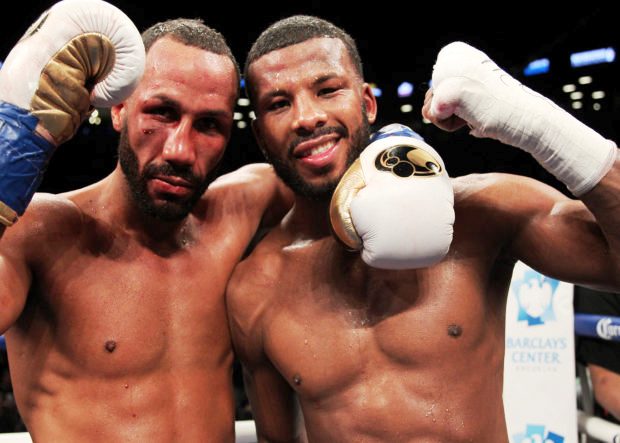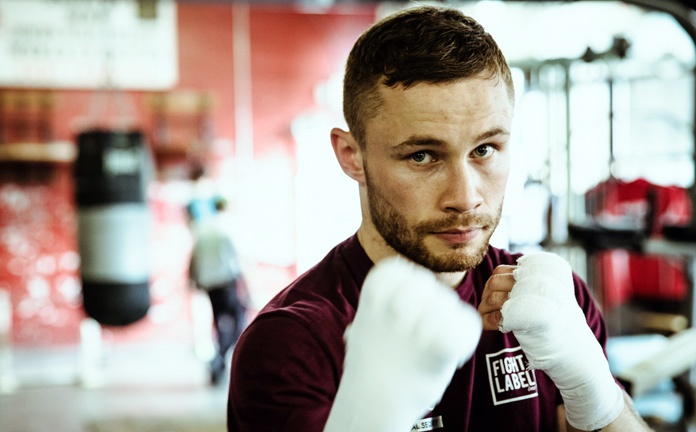Creating Boxing’s Next Cash Cow: Anthony Joshua
Mayweather-Pacquiao signaled a change of order in boxing as the sport will need new stars to supplant these two as its biggest draw. Who will it be, and, perhaps more importantly, how can it be done? Using a three-pronged rubric to break down a fighter’s capacity to ascend boxing’s mountain, we assess their potential to become the ‘next one’. In the second installment of ‘Creating the Next Cash Cow’, we look at British heavyweight Anthony Joshua:
Record: 13-0
Age: 25
Division: Heavyweight
Last Opponent: Kevin Johnson (2015-05-30) KO2
Next Opponent: ?
Network: Sky Boxing
Promoter: Eddie Hearn, Matchroom
Style and brand: Anthony Joshua is the heavyweight we’ve been waiting for. Or, at the very least, he looks that way. Joshua has the build of Zeus and has obliterated all thirteen professional opponents with thunderbolts launched from his right hand. Two weeks ago he easily walked through Kevin “Kingpin” Johnson, handing the American the first stoppage of his career. The knockout galvanized the London crowd and further emboldened Joshua’s enthusiastic promoter, Eddie Hearn, for whom hyperbole counts as regular speech. He has made public statements lauding Joshua as perhaps the greatest fighter of all time (!), forgetting, I suppose, more legendary British heavies like Frank Bruno and Audley Harrison.
Joshua, an Olympic gold medallist, has looked impregnable in thirteen fights but he’s encountered nothing by way of opposition. The tough and durable Johnson, who was brought in merely to give Joshua rounds, presented no difficulty, merely flicking a limp jab that did nothing to dissuade Joshua’s forward movement. The concussive result prophesized by anyone with a modicum of common sense came true even earlier than expected, when two rounds into their ten round fight the referee stopped it.
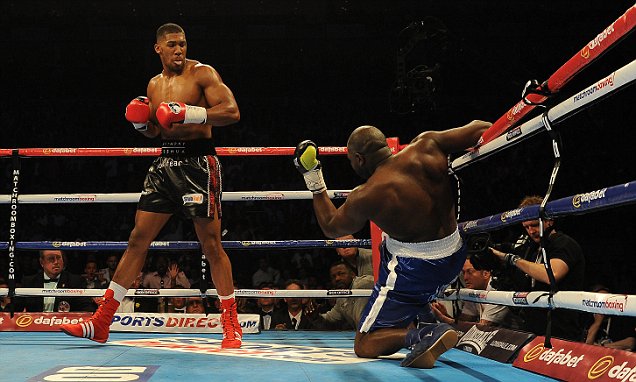
No man has lasted the distance with Joshua as a pro. This speaks to the serious power his fists pack, which is vital to the promulgation of his myth, but it equally reinforces the poorness of his opposition. Did any of the men who stepped in with Joshua actually come to win?
This leads to the next pressing question. What will happen when Joshua confronts someone who isn’t there merely to give him rounds? What will happen when his chin gets whacked? The only evidence of Joshua really looking vulnerable is an old video of him fighting fellow Londoner Dillian Whyte as an amateur. Joshua is younger, fresher, less technically correct, and noticeably leaner. In a sloppy but entertaining bout staged in a tiny ring, Whyte knocks Joshua down and generally bests him. There has been some sniping between the two over social media since and many want a professional rematch, but Hearn’s in no rush to match AJ with Whyte given the steady, cautious pace at which Joshua is being advanced.
Eddie Hearn is working agonizingly hard to foster the idea that Joshua will be the greatest British fighter ever. Hearn wants fans to believe he represents some sort of evolutionary endpoint and that his destiny as a historic champion is preordained. This incessant championing does the young man no favour because people are already tiring of it. Joshua’s potential is obvious and mustn’t be reiterated each time he dispatches of an overmatched lout.
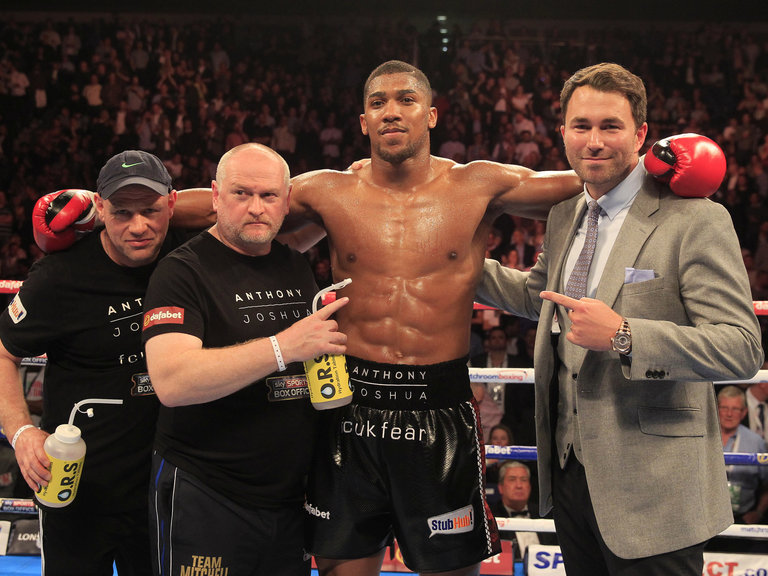
Outside of boxing, Joshua appears well-mannered and wise. He got into trouble as a teenager and knows the consequences of making bad decisions. This invaluable life experience will help him navigate the dangerous waters of youthful fame.
He fights violently, looks good, speaks well, and he’s got a powerful, if overenthusiastic promoter. Britain has embraced Joshua, but we need to see whether his chin is solid enough to support the hopes of an island starved for a heavyweight champion.
External Variables: Joshua comes at an interesting time. The heavyweight division is better today than it was five years ago because there are interesting fights to make. This is not to suggest there’s been an explosion of talent; there hasn’t. Rather, there’s been an uptick in personality, and when staging a fight it’s usually true that compelling personalities do more to attract fans than skills, hence the drawn-out limelight of the glaringly limited Dereck Chisora.
Joshua can make big fights against big personalities, all of whom he should be favoured to beat, and he can do so at his own speed. Though he’s the youngest and least credentialed of Britain’s top big men, he’s quickly become its most popular, and will have much negotiating leverage whenever he’s called to the bargaining table. In England there are interesting matchups to be made against Tyson Fury or David Price, to say nothing of Whyte. In the United States there is Deontay Wilder. And of course, hovering in his own orbit, is Wladimir Klitschko.
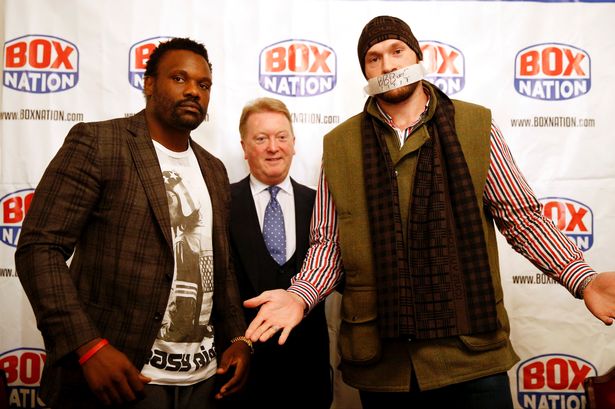
These are the some of the division’s most recognizable names, at least in the English speaking world. But for Joshua to conquer this class, there is another, lower tier he will probably attack first.
Matchmaking: Joshua’s matchmaking has been brilliant so far, in that he’s fought frequently and on some high profile cards against men whose faults have enhanced his strengths. The greater Joshua looks, the more fans want to see him. The more fans want to see him, the louder the hardcore set clamours for him to face a heavyweight of repute.
Joshua will turn 26 late this year and there is no reason to rush his development. He will fight in Manchester on July 18 and then again in September. More experience is needed, and he must obtain it at a measured pace. Accordingly, facing one of the division’s gatekeepers might be the logical choice. Names like Mariusz Wach, Eddie Chambers, and Tony Thompson have been suggested as possible opponents. So has Kubrat Pulev, although he may be too advanced at this stage. The difficulty is finding an opponent who will provide Joshua with a challenge but not disrupt his momentum.
(It should be said that while developing a heavyweight is sometimes seen as walking a razor wire, early missteps aren’t necessarily career-destroying. Just look at Lennox Lewis or Wladimir Klitschko. If properly harnessed, defeat can teach a fighter to round out his skills and strengthen his resolve.)
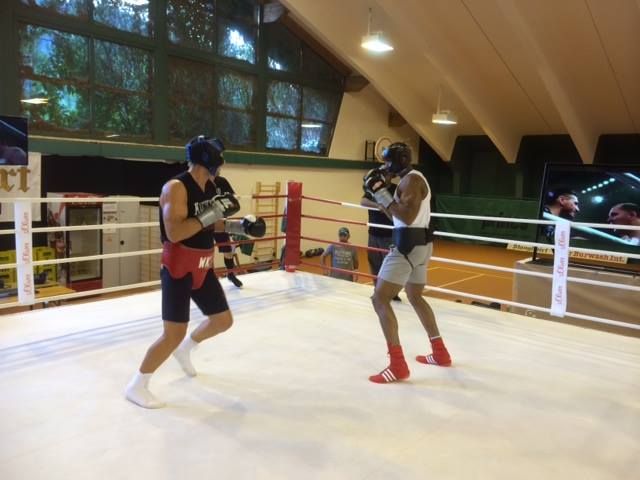
Time is working on the young man’s side. He is an infant by contemporary heavyweight standards and must patiently build his skills to where he can legitimately challenge for a title. Before he gets to Klitschko or even Deontay Wilder, Joshua should conquer Britain. This might come in the form of David Price, the once-hyped Liverpool giant whose career was derailed by consecutive losses to Tony Thompson, or Fury, who is set to fight Klitschko this year for his WBO title. It’s unlikely Fury will best Klitschko, whose skills and power are vastly superior, but a loss wouldn’t necessarily dampen the Mancunian’s drawing power . A Fury-Joshua showdown sometime in the next two years would be a football stadium-worthy event, and assuming Joshua wins it would position him nicely for whoever is in possession of the belts.
Are we getting ahead of ourselves? Is the idea of Anthony Joshua just too alluring? Maybe not. Joshua has more potential than any other big man right now; his blend of size, speed, technique, and power is unmatched among prospects. Boxing is not a bodybuilding contest, though, nor is greatness obtained by annihilating those you’re supposed to. Can he take a punch? Will he scrape his way through a difficult fight? How he answers these questions will determine the arc of his career.
His journey will be an interesting one. A fighter has a trajectory, not a teleology. Nothing is guaranteed in heavyweight boxing; other, similarly freakishly-endowed heavyweights have surfaced only to be obliterated when faced with a stiff challenge. But this shouldn’t dampen our interest. While Joshua’s fame has accelerated faster than his improvement in competition, we all want to see whether he makes it to the mountaintop.
– Eliott McCormick



